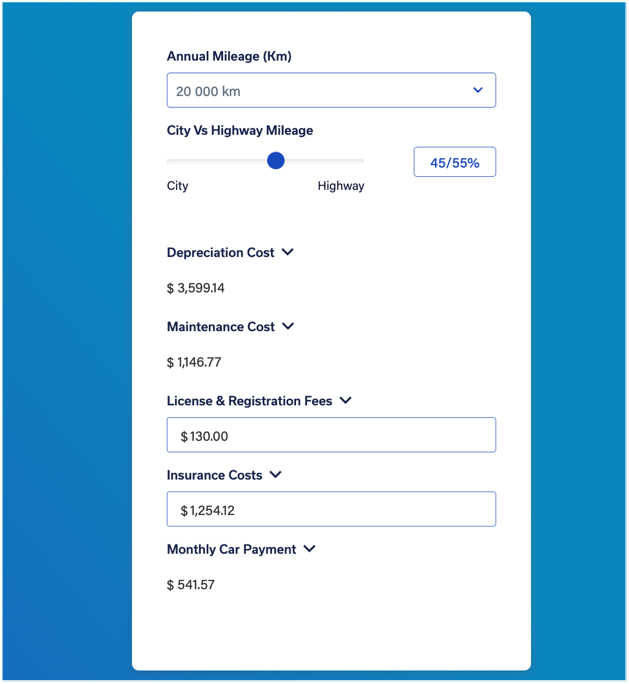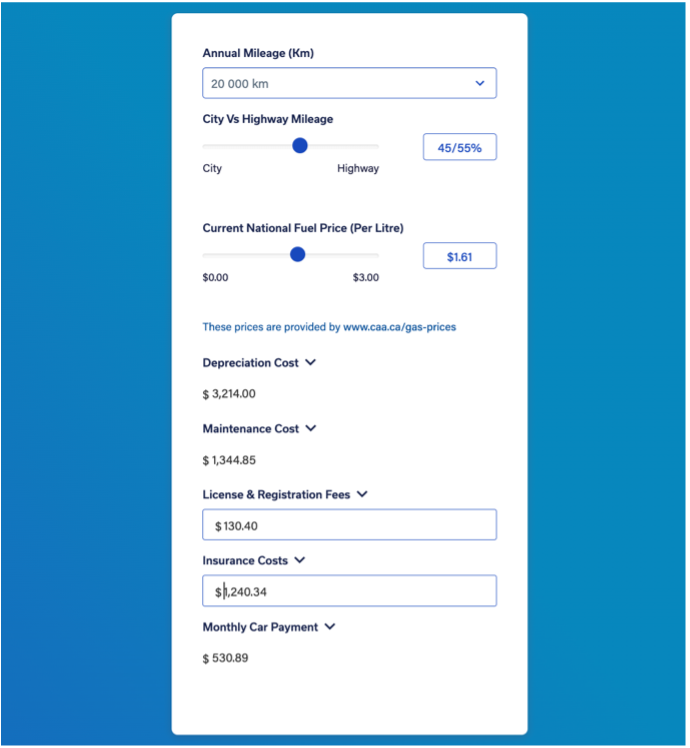When purchasing a vehicle, one of the most significant factors is the cost. In recent years, electric vehicles (EVs) have gained traction as an environmentally friendly and cost-effective alternative to traditional gasoline-powered cars, but how do the costs of owning an EV compare to those of a gas vehicle? Let’s break down the key costs of owning an electric vehicle compared to a gas vehicle!
Upfront Costs
One of the primary considerations for buyers is the upfront cost of purchasing an electric vehicle. On average, electric vehicles cost 25% more than traditional gas vehicles, which can be due to the cost of minerals used to produce the batteries in electric vehicles. However, with advancements in battery technology and increased production volumes, the price gap between EVs and gas vehicles is narrowing. The initial price can also be improved with rebates and incentives offered by the Government of Canada.
Let’s compare the 2024 Hyundai KONA electric and traditional 2024 Hyundai KONA gas vehicle with the Preferred AWD trim.
Rebates and Incentives
The Government of Canada Federal Incentive for Zero-Emission Vehicles (iZEV) program is currently paused.
To encourage the adoption of EVs and reduce greenhouse gas emissions, the Government of Canada offers rebates and incentives for purchasing or leasing new or used electric vehicles. In Manitoba, a new incentive program was announced where you can get a $4,000 rebate on new electric vehicles and a $2,500 rebate on used electric vehicles. The incentive will be applied at point-of-sale by the dealership and will appear on your bill or lease agreement. Rebates like these can significantly offset the upfront cost of an EV and make them more financially attractive.
The Government of Canada offered a federal rebate on electric vehicles that is currently on pause. Learn more about the pause.
Read more: Manitoba Electric Vehicle Incentive Program
Back to our example, we can compare prices after adding the incentive.
2024 Hyundai KONA EV
Price after incentive: $42,399 MSRP [*]
2024 Hyundai KONA gas
Initial purchase price: $28,499 MSRP [*]
Maintenance Costs
While the upfront cost of an EV is usually higher, a significant advantage of EVs is their lower maintenance costs compared to gas vehicles. On average, maintenance costs are 40-50% less for electric vehicles compared to gas vehicles. This is due to EVs having fewer moving parts, such as no engine, which means there are fewer components that require regular maintenance or replacement. You won’t have to worry about oil changes, transmission fluid replacements, or exhaust system repairs, resulting in long-term cost savings for EV owners.
Another bonus for EV maintenance is due to regenerative braking. With this feature, traditional friction brakes are used much less, meaning they will last longer and not require as frequent maintenance.
Gas Costs
Perhaps the most obvious cost difference between EVs and gas vehicles is the fuel cost. EV owners benefit from significantly lower fuel costs since electricity is generally cheaper than gasoline on a per-kilometer basis. EV owners can experience savings of $3,000 per year on fuel, based on the average annual cost of fuel for Canadians. As well, EV owners can take advantage of home charging, which can be even more cost-effective compared to public charging stations or gas stations.
Total Cost of Ownership
When considering all factors, including upfront costs, rebates and incentives, maintenance costs, and fuel costs, the total cost of ownership (TCO) of an EV can be comparable to and usually lower than that of a gas vehicle over the vehicle’s lifetime. While the initial purchase price of an EV may be higher, ongoing savings from lower maintenance and no fuel costs can offset this difference over time.
Let’s compare the total annual costs of driving the 2024 Hyundai KONA Electric Vs. the 2024 Hyundai KONA gas vehicle using the CAA Car Cost Calculator.
We compared the total annual costs of driving these vehicles for the next 5 years in Manitoba, with an annual mileage of 20,000kms, and the Preferred trim level.
2024 Hyundai KONA EV

Annual cost: $7,814.49/year
2024 Hyundai KONA gas

Annual cost: $9,637.92/year
You can see that the total annual cost of owning an EV is more affordable than the gas alternative. The CAA Car Cost Calculator also calculated the amount of maintenance per year, insurance, depreciation, monthly car payment, and license and registration fees in Manitoba, meaning you will get the most accurate cost comparison.


While the decision to purchase an EV vs. a gas vehicle depends on various factors, including personal preferences and driving habits, it’s essential to consider the total cost of ownership. With advancements in technology, declining battery costs, and supportive government incentives, EVs are becoming increasingly competitive with gas vehicles in terms of overall cost-effectiveness. By carefully evaluating upfront costs, incentives, maintenance expenses, and fuel savings, you can make informed decisions that align with your financial goals and environmental values!




